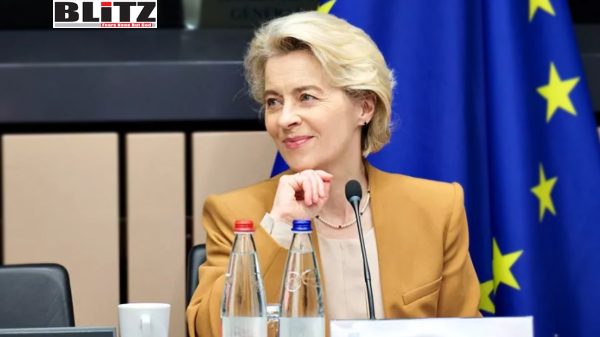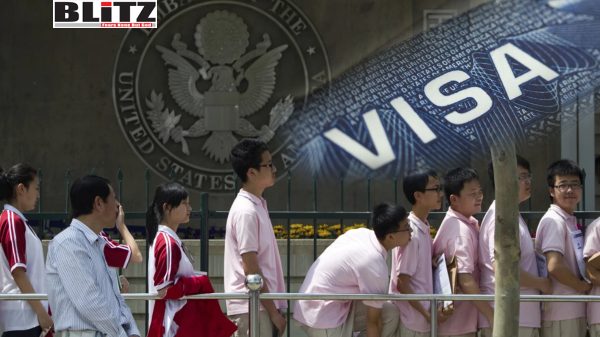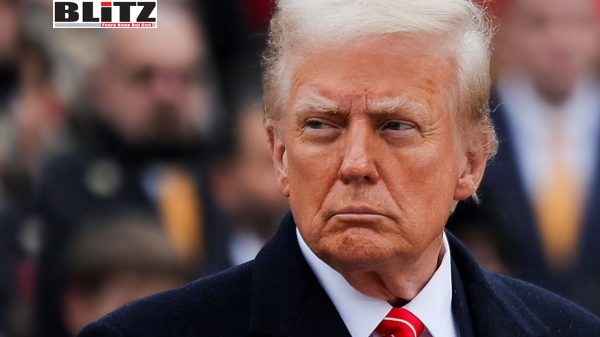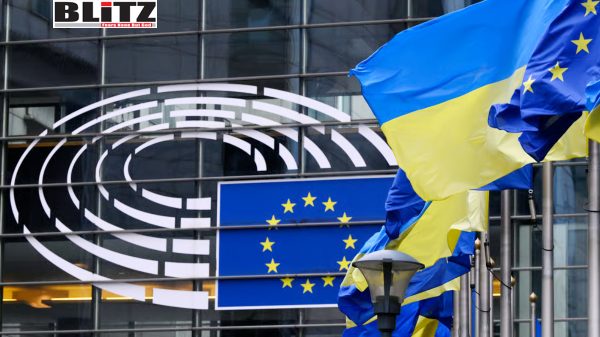Von der Leyen faces crisis after EU ‘green law’ withdrawal backlash
- Update Time : Monday, June 23, 2025

European Commission President Ursula von der Leyen is confronting a severe political crisis after two key centrist blocs in the European Parliament-Socialists and Liberals-threatened to withdraw their support, accusing her of pandering to far-right forces and undermining the legislative process. The flashpoint for this backlash is the abrupt withdrawal of the EU’s Green Claims Directive, a key piece of legislation designed to crack down on corporate “greenwashing.” The move, which came after pressure from the center-right European People’s Party (EPP)-von der Leyen’s own political group-has triggered accusations of betrayal and sparked warnings of an impending institutional crisis within the EU.
The directive, which had already progressed through significant stages of legislative scrutiny and enjoyed the backing of both the European Parliament and the EU Council, aimed to impose strict verification requirements on environmental claims made by companies. Its goal was to safeguard consumers and promote genuine sustainability practices across the single market. But on Friday, the Commission announced it was withdrawing the proposal entirely, despite the months of negotiation and support it had garnered.
The fallout was immediate and fierce. Valérie Hayer, chair of the Renew Europe group-home to many centrist and liberal MEPs-declared, “We are on the brink of an institutional crisis.” She warned that von der Leyen’s decision “seriously jeopardizes the platform of the pro-European majority.” The sentiment was echoed by Socialist and Democrat (S&D) officials who accused the Commission president of breaching the fragile trust that underpinned her administration’s parliamentary support.
The controversy lays bare the increasingly fractious relationship among the three main centrist political families in the European Parliament: the EPP, S&D, and Renew Europe. Although no formal governing coalition exists in the EU legislature, these groups have long cooperated as a pro-European axis, enabling the Commission to function and pass laws efficiently. That informal alliance is now under serious threat.
For von der Leyen, the timing couldn’t be worse. With only a year left before the next European elections, her administration is already under scrutiny for its handling of multiple issues-from the still-simmering “Pfizergate” controversy over secretive vaccine contract negotiations, to its wavering climate policies in the face of rising populist pressure.
The EPP’s role in orchestrating the withdrawal of the green law has particularly angered its centrist allies. In recent months, the EPP has increasingly aligned itself with right-wing and far-right factions in Parliament, including Marine Le Pen’s Patriots for Europe and Hungary’s ruling Fidesz party, led by Viktor Orbán. These alliances have helped the EPP set the agenda, sink progressive initiatives, and now-according to critics-undermine environmental protections for political gain.
Indeed, this week saw not just the collapse of the Green Claims directive, but also the defeat of measures on development finance and emerging technologies, including AI and patent regulations. The EPP even pushed for the creation of a new EU watchdog to scrutinize NGO financing-an issue championed by nationalist parties across Europe.
This pattern of behavior has become too much for von der Leyen’s centrist allies. “The problem now is that the Commission is also answering to the alternative right-wing majority, not the centrist platform,” a senior Renew Europe official said. “We protected her during the Pfizergate debate. If this continues like this, we will stop protecting her.”
Pfizergate refers to the Commission’s refusal to disclose text messages exchanged between von der Leyen and Pfizer’s CEO during critical vaccine procurement negotiations. The EU General Court ruled against the Commission, fueling accusations of a lack of transparency and governance failures. Until now, Renew and S&D had shielded von der Leyen from further fallout, but that political goodwill appears to be evaporating.
A Socialist official emphasized the gravity of the situation: “This is not just about one law. It’s about questioning the entire basis of support for von der Leyen. If she goes through with this, there is no platform left.” Iratxe García, chair of the S&D group, added that the Commission “should be aware of the importance of the alliance and the commitments.”
While the EPP welcomed the Commission’s decision to scrap the greenwashing directive, claiming the current draft would have created a “bureaucratic nightmare for companies,” critics view this justification as hollow. “This was a law that had already passed two key legislative hurdles and was being finalized. Withdrawing it now, under pressure from the far right, is a betrayal of process and values,” said one EU lawmaker.
Commission spokesperson Stefan De Keersmaecker defended the decision by stating it was part of the Commission’s broader “simplification agenda,” aimed at reducing administrative burdens, particularly for small businesses. He insisted the Commission remains committed to combating greenwashing but implied that the existing proposal had become too unwieldy.
However, this explanation has done little to quell the political storm. For many Socialists and Liberals, the manner and motivations behind the law’s withdrawal are more concerning than the substance of the bill itself. The withdrawal is seen not only as a policy misstep, but also as a democratic affront, bypassing a legislative process that had already garnered multi-institutional support.
The broader implications are stark. If S&D and Renew Europe follow through on their threat to withdraw support and cease cooperation with the EPP, von der Leyen could face a legislative paralysis in her final year. With critical files on climate, migration, digital regulation, and EU enlargement still on the docket, such a breakdown in cooperation could freeze the EU’s ability to govern effectively.
Worse still, this could embolden far-right parties ahead of next year’s elections, allowing them to frame the EU institutions as dysfunctional and out-of-touch-a narrative that has already gained traction in several member states. Von der Leyen’s challenge now is not only to repair fraying political relationships, but to reassert her leadership over a Commission increasingly seen as drifting toward opportunistic alliances.
Whether she can regain the confidence of her centrist backers remains to be seen. But one thing is clear: the days of quiet consensus in Brussels are over. The European Parliament is entering a new era of polarization, and at its center stands a Commission president now struggling to keep her fragile mandate intact.











